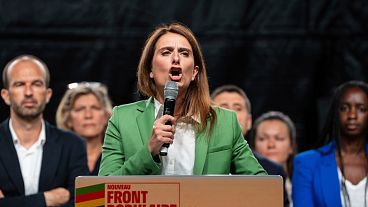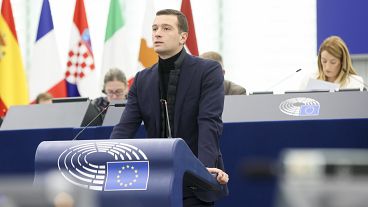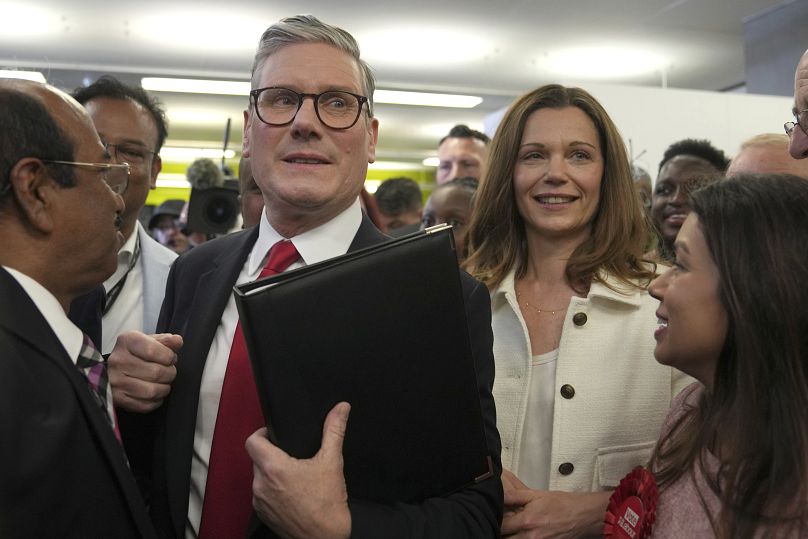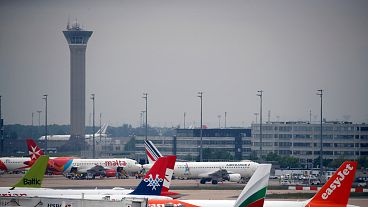Campaigners and experts say support for environmental policies in the UK general election means Labour must now make climate action a top priority.
Britain’s Labour Party has won the UK general election in a “landslide” victory.
It was one of the biggest wins in the centre-left Labour’s history, as opposed to monumental losses for the Conservatives who have been in power for 14 years.
In his first speech as Prime Minister, Keir Starmer said he plans to “restore service and respect to politics” and called his work “urgent”. But does he consider the climate crisis to be an urgent priority?
Labour will be sharing Parliament with the Liberal Democrats who won 71 seats, bouncing back as the third-largest party in Parliament for the first time since 2015. The Green Party quadrupled its representation in parliament with its best-ever performance in a general election, leaving them with four seats.
Campaigners and experts say the strong environmental policies that these smaller parties have been pushing for means Labour must now make climate action a top priority.
Will Labour be emboldened to introduce ‘truly progressive’ climate policies?
Labour has promised to make Britain a “clean energy superpower”. They plan to open a publicly owned clean energy company, called Great British Energy, by 2030. They say this will create jobs and reduce consumers’ energy bills.
Labour also pledged to make all of the country’s electricity UK-generated and zero carbon by the end of the decade, alongside staying on track for net zero by 2050 targets.
Mike Childs, head of policy at Friends of the Earth, says the ‘historic landslide’ victory hopefully signals an end to “fourteen years of dither, delay and retreat that defined the Conservative brand of environmentalism.”
“Labour’s plans for climate and nature are far stronger than its predecessor’s, including a commitment to meet the international goal to cut emissions by two-thirds by 2030,” Childs explains, “but need to go further still if we’re to get the country back on course for meeting crucial targets.”
He adds that such a large mandate, due to their majority in Parliament, should mean Keir Starmer is emboldened to bring in “truly progressive policies”. Current extreme weather events, according to Childs, only emphasise how urgent it is for the new UK government to make climate policies a “top priority”.
Labour is facing a climate front including lifting the ban on onshore wind, boosting solar power, reversing oil and gas licenses in the North Sea and making water companies pay to clean up the UK sewage crisis.
A 326-seat majority in the UK parliament should help them pass the legislation needed to implement the promises laid out in their party manifesto.
There was a strong showing from the Reform UK party, however, with its explicitly anti net-zero stance. Despite winning just four seats, candidates came second in many constituencies which exert some pressure on climate policies.
Were climate U-turns a ‘catastrophic political blunder’ for Sunak?
Outgoing Prime Minister Rishi Sunak claimed that the UK was still committed to its net-zero targets despite rolling back numerous climate policies during his time in office. Experts say this lost him credibility in the eyes of the public.
“Dependence on oil and gas has driven the cost of living crisis. By delaying and damaging the clean energy policies that could cut energy bills, Rishi Sunak pitched the Conservatives against every UK household,” says Ed Matthew, campaigns director at thinktank E3G.
“It was a catastrophic political blunder.”
Greenpeace UK’s co-executive director, Areeba Hamid, says Labour’s massive victory has “buried” Prime Minister Rishi Sunak’s “divisive anti-green agenda” with the country rejecting his climate rollbacks.
Victories for other parties also shouldn’t be ignored by Starmer when devising a plan to tackle the most pressing climate issues, Hamid went on to say.
“The Green surge and success of the Lib Dems, who stood on much bolder climate and nature pledges, shows that there is a genuine appetite from voters for much stronger green policies from the government. Keir Starmer must take note,” Hamid says.
She adds, however, that this green transition must be done in a “fair and equitable way”. That could include increasing taxes on the super-rich and polluting companies while ensuring that environmental policies invest in creating green jobs. Investment, she says, also needs to be focused on home heating, public transport, nature restoration and agriculture.
“This is the change people voted for - it’s time for Starmer to deliver.”
















